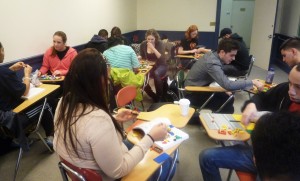I am an experienced associate professor with a 18-year history of educating future sociologists and urban anthropologists and skills in qualitative research methods, arts and film-making, fundraising, and social media. I find excitement in studying the rituals and practices of daily life and the invisible actors who surround us. I seek strategic solutions to empower vulnerable communities by giving them a platform of truly public space and a voice in the civic sphere. I value ethical and social justice in sharing knowledge and am driven by a passion for creative communication.
I believe that there are three fundamental requirements of both teachers and students a comfortable learning environment and effective communication: respect, passion, motivation, and challenge. As a social scientist, I am excited by the incredible diversity of human societies, but also committed to making a contribution to the welfare of individuals and groups within societies. This is a primary value that I want to pass on to my students: I want them to develop a sense of belonging to the human community and of interdependence within that community, along with a sense of personal responsibility and agency in the world.
The first way to achieve that is for teachers to model respect and caring for our students as individuals and for their needs and goals. At a small college, there are many opportunities to foster a supportive, personalized learning environment in the classroom and beyond. I adapt my teaching to the growing diversity of students in my classrooms, always looking for ways to accommodate individual needs, interests, and skills. I maintain an open-door policy and make myself liberally available to my students for help with classwork, informal discussions of the class material, support with career goals, and extracurricular activities.
To further enhance students’ sense of community and the communication skills that are needed to build community, I provide many groups learning experiences in my classes. These activities help students develop leadership skills, acceptance of others and their differences and ideas, and group problem-solving skills.
To motivate students to become passionate about human societies requires a dynamic teaching style. I achieve this with my naturally enthusiastic delivery and by using a variety of classroom activities that require active student participation, up-to-date media presentations, debates, site visits in the local area, and so on. New York City provides an ideal learning environment to stimulate students’ interest in human cultures and to study urban social challenges.
An important goal of my teaching is to inspire my students to seek practical applications of their understanding of human cultures to urgent global challenges. My curriculum and teaching style emphasizes a high level of independent critical and creative thinking. I consider it my task to teach students to think in ways and about ideas that they have never considered. At the same time, I ask students to set high standards in their personal values and achievements so they will be equipped to tackle large social problems.
